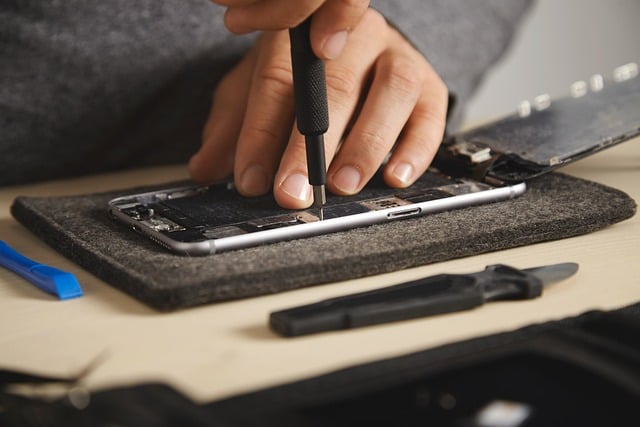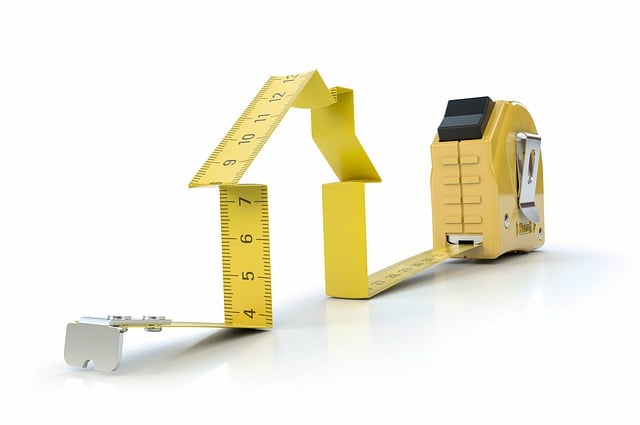Regular HVAC maintenance under the scope of Home Repair and Maintenance is key for maximizing energy efficiency and extending your system's operational life. Annual inspections by a certified professional are essential to catch and address small issues before they escalate into major problems. Homeowners should also regularly clean or replace filters every 1 to 3 months to maintain optimal airflow. Monitoring the HVAC system between professional visits for any unusual noises, moisture presence, or efficiency declines is important. Ensuring thermostat accuracy and maintaining clearance around the unit by clearing debris are additional steps that contribute to the system's performance. By consistently following these maintenance practices, you can enhance your HVAC system's reliability and longevity, leading to a more comfortable home environment with energy savings and better air quality.
Maintaining and repairing your HVAC system is a critical aspect of home maintenance, ensuring comfort, energy efficiency, and longevity. This article delves into the best practices for upkeep, outlining how to understand your HVAC system, prepare for seasonal changes, and the significance of professional inspections. It also guides you through DIY maintenance tips and troubleshooting common issues before they escalate into costly repairs. Furthermore, the importance of meticulous record-keeping is highlighted to track service calls and system performance, aiding in informed decision-making for optimal care. Transitioning into repair strategies, we explore recognizing signs of HVAC distress, conducting a cost-benefit analysis for quality repairs, and navigating the repair process from start to finish. Choosing the right contractor with valid licenses, ample experience, and comprehensive warranties is also crucial for long-term savings. Additionally, preparedness for unexpected system failures through emergency maintenance plans is discussed to keep your home’s climate control system running smoothly. By integrating these practices into your home repair and maintenance regimen, you can extend the life of your HVAC system and enhance overall home comfort.
Best Practices for HVAC Maintenance to Extend System Lifespan

Regular upkeep of your HVAC system is paramount for both energy efficiency and longevity. Homeowners should prioritize routine maintenance to ensure their systems operate optimally throughout the year. A key best practice is scheduling annual inspections with a certified professional. These inspections can identify and rectify minor issues before they escalate into costly repairs. Cleaning or replacing filters every 1 to 3 months is also essential for maintaining airflow and preventing dust buildup, which can impede system performance and shorten its lifespan.
Beyond regular check-ups, it’s important to monitor the system’s operation between professional visits. Keep an ear out for unusual noises, watch for signs of moisture or leaks around the unit, and note any changes in heating or cooling efficiency. Thermostat calibration can also affect overall system performance; ensuring it is correctly positioned and functioning can help maintain optimal temperatures within your home. Furthermore, clearing surrounding areas of debris and foliage will prevent obstructions that could restrict airflow and overwork the system. By adhering to these best practices for HVAC maintenance, you can extend the lifespan of your system and ensure it provides reliable comfort for years to come. Regular Home Repair and Maintenance are critical components in preserving the integrity and efficiency of your HVAC system.

Regular maintenance is a cornerstone of effective HVAC home repair and maintenance, ensuring that your heating, ventilation, and air conditioning systems operate at peak efficiency. A well-maintained HVAC system not only extends its lifespan but also contributes to energy savings and improved indoor air quality. Homeowners should schedule annual inspections and cleanings to prevent minor issues from escalating into costly repairs. These checks typically include inspecting the thermostat settings, cleaning or replacing filters, checking for leaks in ducts, testing all safety devices, and assessing the overall functionality of the system. By addressing these tasks consistently, homeowners can avoid unexpected breakdowns and maintain a comfortable living environment year-round. Moreover, professional HVAC technicians have the expertise to pinpoint potential problems before they become significant, ensuring that your system is reliable and efficient. Engaging in proactive HVAC maintenance is a smart investment for any household aiming to preserve comfort while minimizing repair costs and energy waste.
Regular upkeep of your HVAC system is non-negotiable for maintaining comfort, energy efficiency, and longevity within your home. The best practices for HVAC maintenance outlined in this article serve as a roadmap to extend its lifespan and ensure optimal performance. By following these guidelines, homeowners can effectively prevent costly repairs and premature system failures, thereby safeguarding their investment in home repair and maintenance. Implementing these strategies not only enhances the functionality of your HVAC unit but also contributes to a more sustainable living environment. Remember, when it comes to your heating and cooling systems, proactive care is key to long-term success and comfort.






